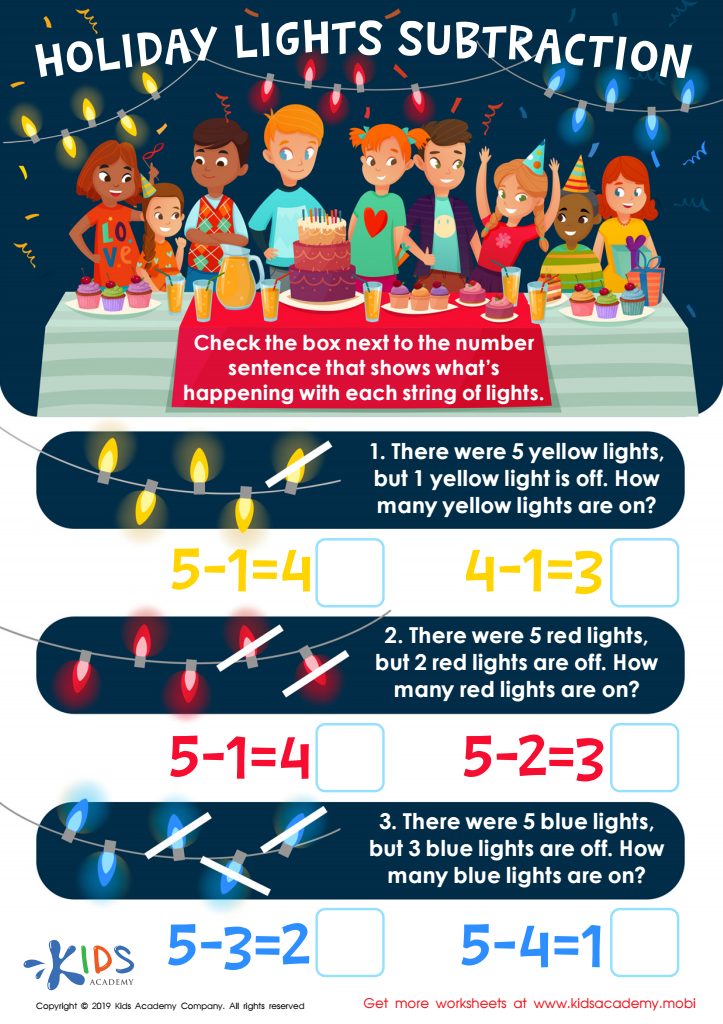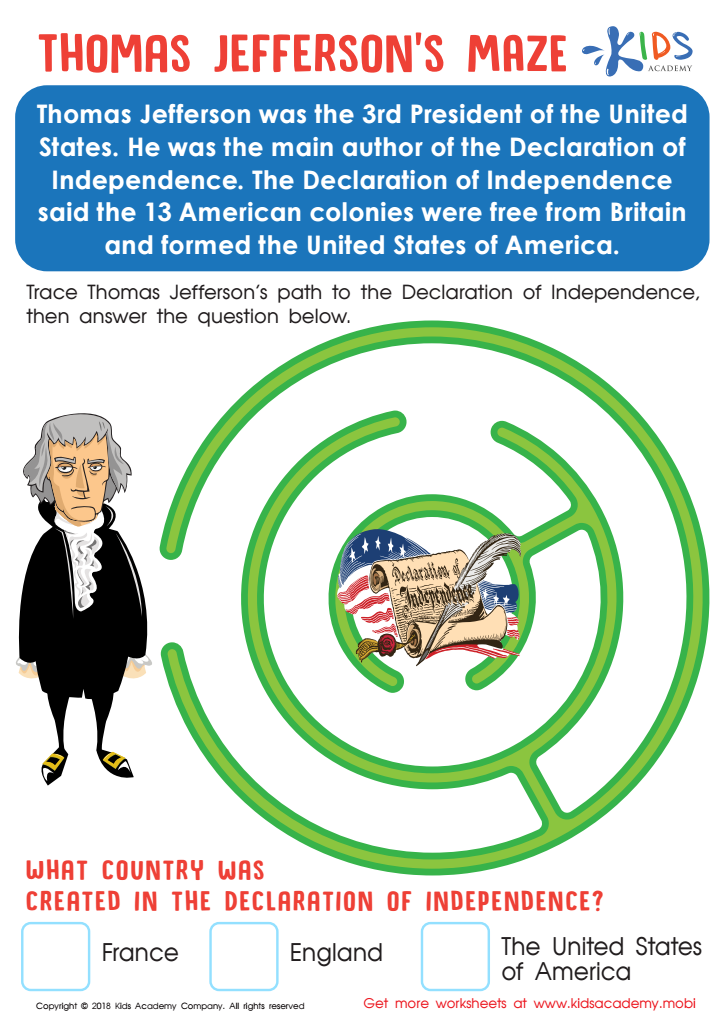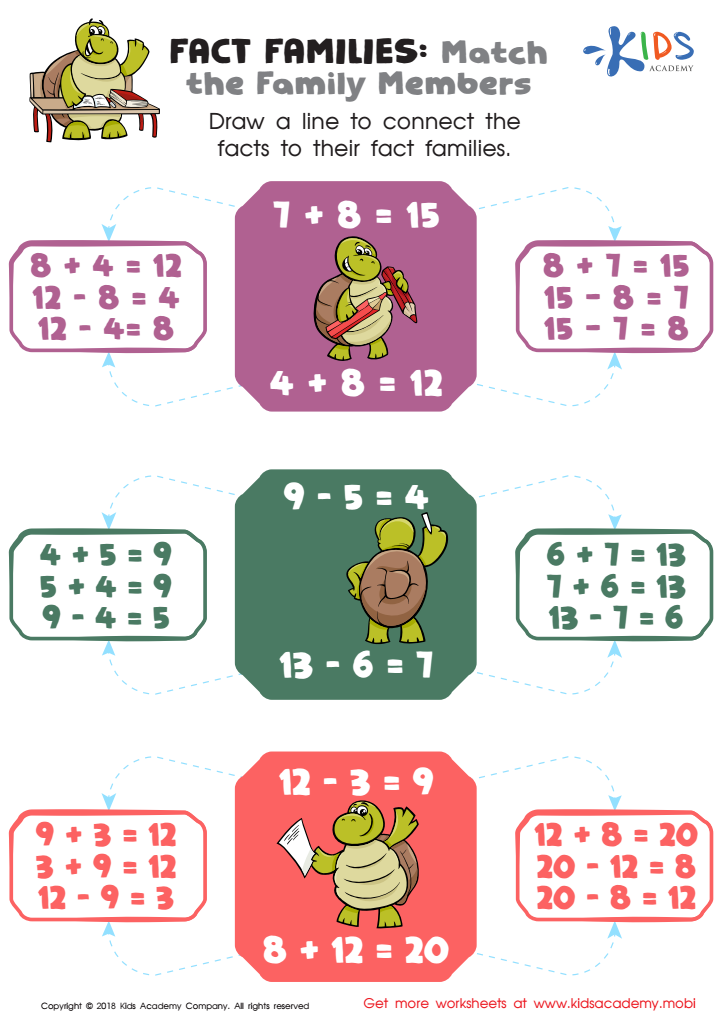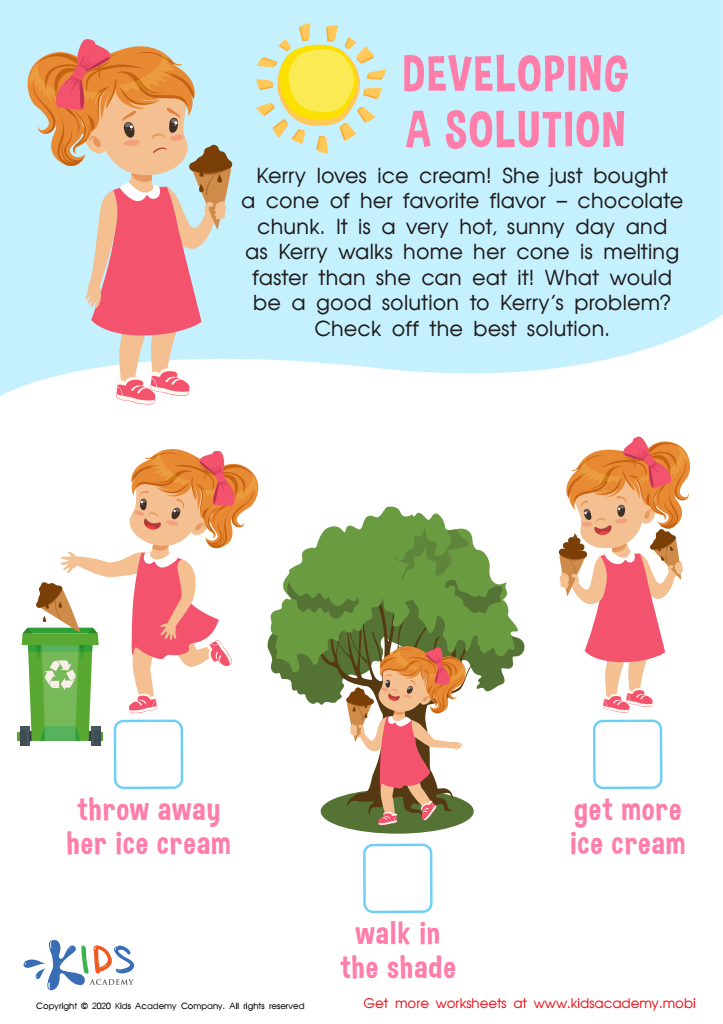Improve problem-solving skills Worksheets for Ages 6-9
8 filtered results
-
From - To
Our "Improve Problem-Solving Skills: Worksheets for Ages 6-9" offer engaging activities designed to enhance critical thinking, logic, and creativity in young learners. These printable worksheets cover a variety of problems, including puzzles, patterns, and real-life scenarios that challenge children to think independently and develop effective solutions. Suitable for home or classroom use, our resources foster important skills such as reasoning, patience, and perseverance. With vibrant graphics and age-appropriate content, these worksheets make learning enjoyable while providing valuable practice for academic success and everyday life. Unlock your child's potential with our expertly crafted problem-solving activities!


Holiday Lights Subtraction Worksheet


Thomas Jefferson's Maze Worksheet


Fact Families: Match Family Members Worksheet


Developing Solution Worksheet
Parents and teachers should place significant emphasis on improving problem-solving skills in children aged 6-9 because these skills are fundamental in building a strong foundation for future learning and development. At this critical stage of cognitive development, children start to grasp the concepts of cause and effect, reasoning, and logic. Fostering problem-solving abilities enhances their critical thinking, encouraging them to think independently and make well-reasoned decisions. These skills are not only integral to academic subjects like mathematics and science but are essential life skills that impact daily interactions and tasks.
Moreover, by nurturing problem-solving skills, adults help children build confidence in their abilities. When children successfully tackle challenges, they experience a sense of achievement, which reinforces a positive attitude towards learning and persistence. Problem-solving also promotes creativity, as children learn to explore multiple solutions and think outside the box. This adaptability is crucial in today’s rapidly changing world.
Effective problem-solving skills support emotional and social well-being as well. They enable children to resolve conflicts amicably, understand different perspectives, and build stronger relationships. Hence, focusing on these skills at a young age equips children with tools essential for overall development, success in school, and preparedness for future challenges.


 Assign to My Students
Assign to My Students





















